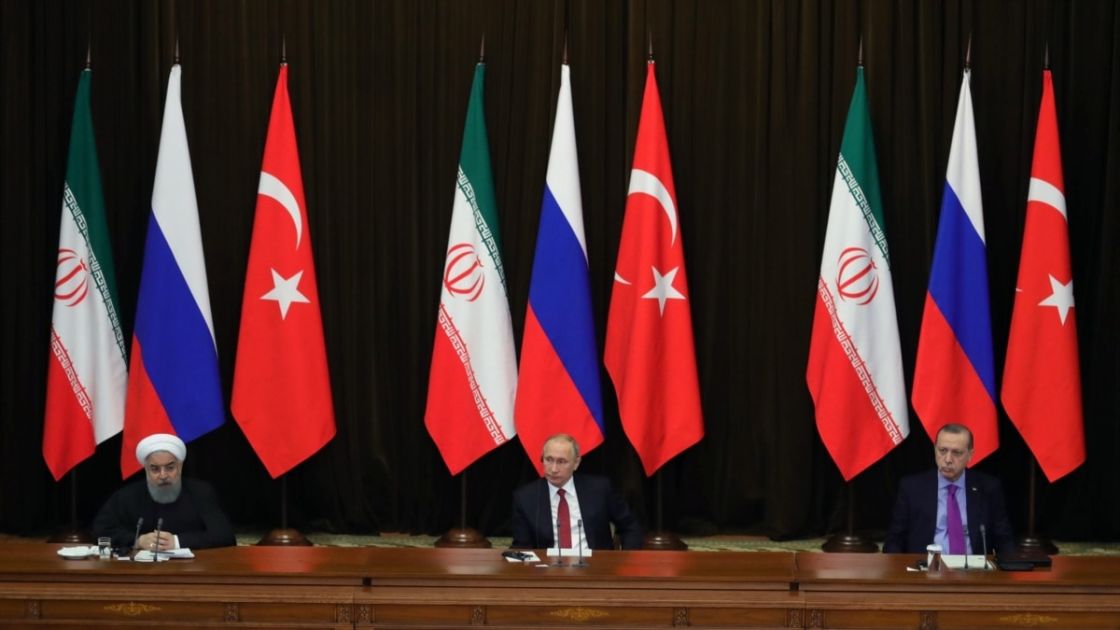- Editorials
- Posted
Kassioun Editorial 1190: How Does a Syrian-Turkish Settlement Affect the Political Solution?
Official Syrian, Turkish, and Russian statements over the past week regarding the Syrian-Turkish settlement, made by the Syrian president, the Russian foreign minister, and Turkish officials, indicate that the gradual steps towards reaching a settlement, which have extended for more than two years starting with the Tehran summit of the Astana trio in July 2022, have come close to reaching a point of no return. This is represented by a meeting at the presidents’ level, which naturally will not be the end of the issue. Instead, it will form the basis for consensus that will be followed by the practical implementation of the steps of that consensus.
The importance of a Syrian-Turkish settlement under the auspices of Astana is of great importance to both countries, and a major step towards resolving the Syrian crisis based on the full implementation of UNSC Resolution 2254. This importance explains the delay in achieving the settlement so far, despite all the efforts, and also explains the extent of the obstruction it has received and continues to receive from Western powers, along with the extremist forces in both the regime and the opposition on the one hand, and even from the forces closely linked to Washington within Turkey on the other hand.
The importance of this settlement and its subsequent impact on the political solution in Syria can be summed up in several main points, including:
First: Achieving this settlement will mean removing Turkey once and for all from the Washington-led “Western small group”, which implicitly means completing the burial of this group, whose primary mission was and still is: preventing a solution to and prolonging the Syrian crisis.
Second: The settlement will certainly include the withdrawal of Turkish forces from Syria, within specific timeframes, in parallel with steps that are agreed upon regarding the political solution, the return of refugees, and other issues. This means that it will ultimately lead to the withdrawal of Turkish forces, so that this exit will become the beginning of the exit of the rest of the foreign forces, primarily the American from the northeast.
Third: The settlement will allow for the breaking of Western siege on Syria, and the breaking of the endless Western sanctions, which are not expected to be lifted, regardless of what scenario happens (this can be learned from at least the US sanctions experience throughout the twentieth century, which included up to 60 countries). By breaking the sanctions and the siege, Washington’s weight within Syria, which is already declining, will further decline and enough to resolve the crisis and implement UNSC Resolution 2254 without US participation, and against its will if necessary.
Fourth: The settlement will deal a severe blow to the American “step-for-step” projects in principle, which aim to “change the regime’s behavior”, or removing Syria from its historical regional and international position in a way that serves the Zionist entity, and prolonging and sustaining the de facto division, in accordance with James Jeffrey’s saying of turning Syria into a “quagmire” and that “stalemate is stability”.
Fifth: Reducing the American and Western weight in general in Syria and opening up prospects for cooperation with the rising East, and across our borders with Turkey, which exceed 900 km, means opening the door to stopping the destructive IMF and World Bank formulas, which have been applied for years in the country. It also means opening the door to a new economic model far from economic subservience, and far from an economy based on high productivity and a new radical form of wealth distribution.
It goes without saying that these positive results and others will not be achieved automatically once the Syrian-Turkish settlement is reached. Rather, they require a broad national and popular struggle, including a new rise of the popular movement in Syria. However, what is certain is that this settlement can provide better and more suitable conditions not only for the rise of the new wave, but also for its rise within a Syria that is united – land and people – far from Western manipulation thereof, which will greatly increase the chances of its success.


